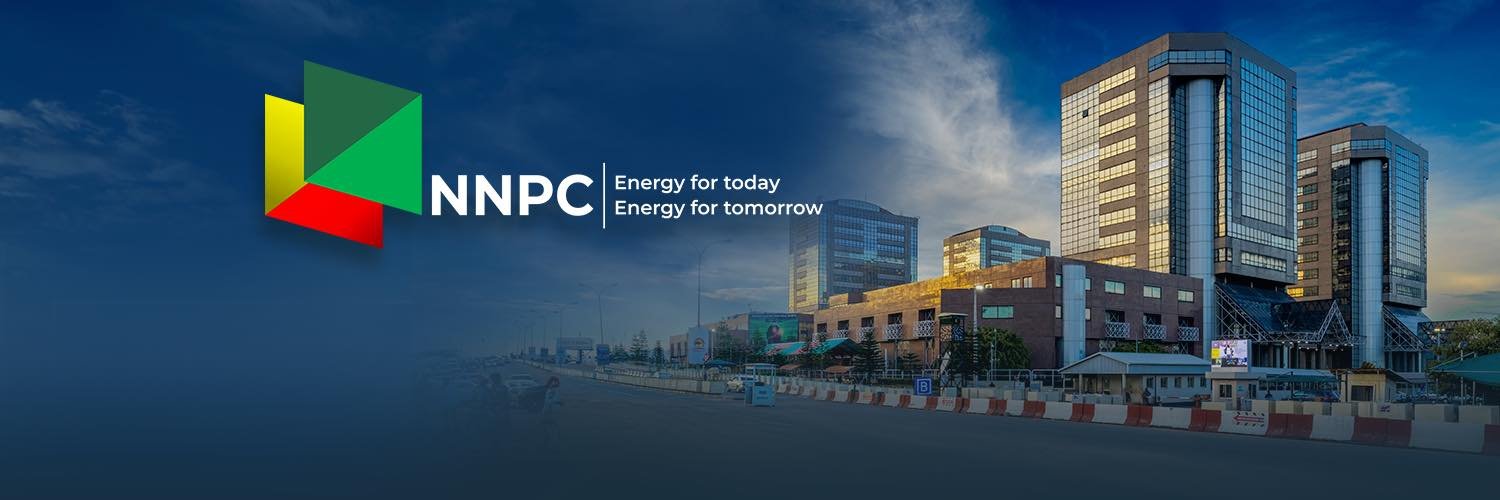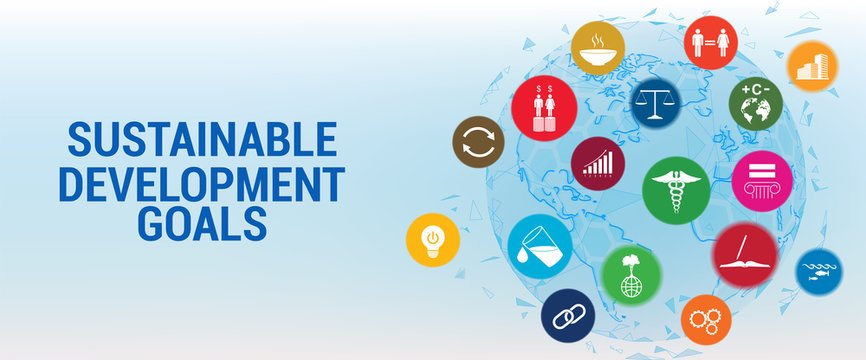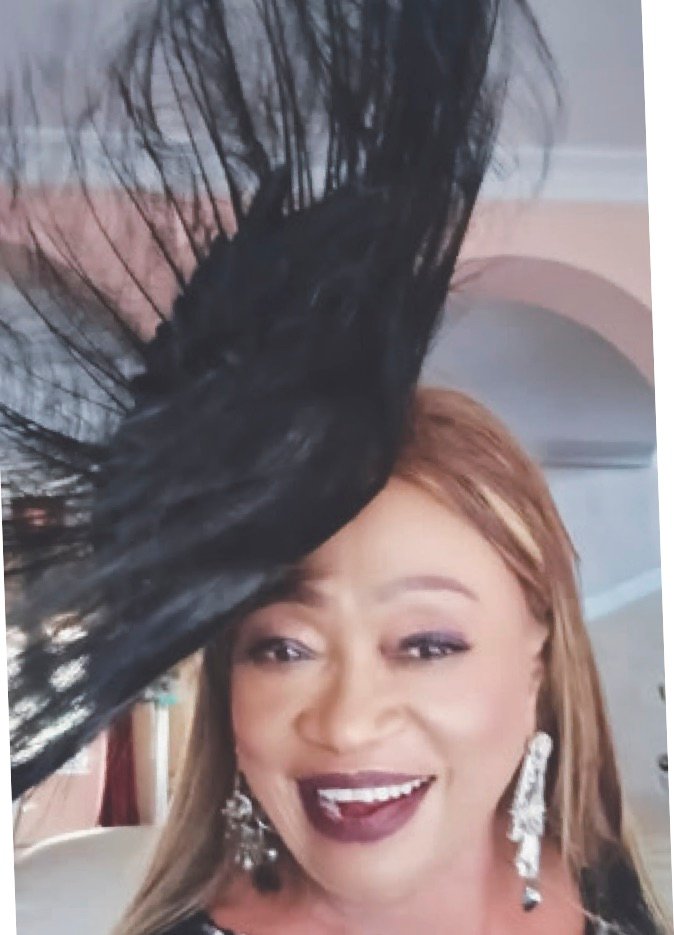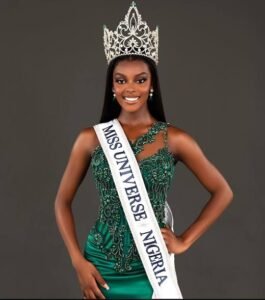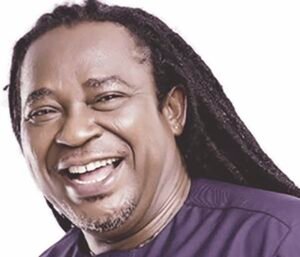Iyom Christy Ray Okoye is a politician and businesswoman. She is the CEO of Raynes Group of Companies comprising Raynes Oil and Gas, Raynes Jewellery and Raynes Fabric, among others. She also rose in politics as a chieftain of the All Progressives Grand Alliance (APGA). She’s also an ambassador extraordinary to Eze Dunu Igwe Ifitedunu
In this interview, she spoke about women’s challenges in politics, her philanthropic work, rights of the girl child and many others.

By Christy Anyanwu
How was your childhood like?
I am the third child of Honourable V.C and Chief (Mrs.) Christy Ikeotuonye. My father was a politician and held various political positions, including chairperson of NPN and later NPP.
I went to Queen of the Rosary College (QRC). I had my primary education and part of my secondary school in my dad’s school. Then I went to University of Nigeria, Nsukka, where I got a bachelor’s degree in education administration.
After your university education, what next?
After my youth service, I took up a brief teaching appointment in Lagos State. I voluntarily retired after 13 years. I went into teaching because I got married then, and I felt I needed time with my children, for my family. I retired as a vice principal to go into private business because I thought that I wasn’t quite fulfilled in terms of financial capacity with the teaching profession.
Tell us about your foray into business
After retiring from teaching, I opened the Raynes Oil and Gas business. In fact, I would describe myself as the CEO of Raynes Group of Companies because, under that, I had Raynes Oil and Gas, I had Raynes Jewellery and I had Raynes Fabric. So I had these three businesses running at the same time.
I had an office for my oil and gas company. I also had a shop for the Raynes Fabric and the Raynes Jewellery, in which I did very well. That was how I made my initial capital that propelled me into big-time business and my charity work. So that’s it about my business venture.
How was your stint in politics?
Like I said, my father was a politician, so I was naturally interested in politics. I joined the All Progressives Grand Alliance (APGA) and I went as far as being the woman leader of the presidential campaign, which exposed me to a lot of things in politics, particularly pertaining to women. But, at the end of the day, I accepted that my philosophy in life did not align well with the kind of politics they play in Nigeria. Most times, women are exploited. It’s either you’re exploited or you don’t go far or you have a godfather.
You’re also a philanthropist. What propelled that aspect of you?
Women are really exploited. This was part of why, on my retirement, I decided that I had to go into a lot of charity work, particularly to help women and children, because they are the most vulnerable. I saw it in politics, where the women would be exploited because they were looking just to contest for a particular position. Of course, most of them did not have the money. So the men felt, the so-called godfathers felt that it was okay to exploit these women.
I had a lot of cases coming to me as the chairperson, I mean, as the woman leader of the APGA presidential campaign. Those things turned me off in politics. That was not the kind of ideal or the politics I saw my father play in the 1960s. Because of that, I had to withdraw from active politics. Moreover, at my age, I think that God has blessed me enough to start giving back to the society.
Tell us about your charity work
I belong to various charity and humanitarian organisations. I have been a member of the Committee of Friends for Humanity (COFFHA) for over 30 years. Since inception, I have been a COFFHA member, and I was privileged to be the third president of COFFHA, during which I think I did a lot for the association.
Just to mention a few, during my time, we built and furnished the emergency centre at the Isolo General Hospital, Lagos. We renovated the Gbagada General Hospital. We renovated that of the General Hospital in Apapa and also the General Hospital in Ikeja.
During my tenure, we refurbished all these hospitals. And then we made numerous visits to most of these hospitals, helping people settle their bills and offering help to the sick. It was during my tenure that we started the Women Empowerment programme in COFFHA. We empowered over 100 women, not only in Lagos; we took the empowerment programme as far as Awka, Anambra State. When we were there, it was Peter Obi who was the governor and his wife, Margaret, helped us.
And then the current president started the COFFHA Helping Hand Initiative; and because of my love for charity, she said I was going to be the chairperson of the COFFHA Helping Hand Initiative, which we have been doing, visiting hospitals, and then helping those that are sick, paying hospital bills. Apart from that, most importantly, I have my own charity outfit, which I call the Christy Ray Okoye Foundation for Widows and Children. This has helped me to do a lot in my village.
So far, I have empowered more than 50 widows. In fact, every year, at Christmas or Easter, I use that as an opportunity to empower some widows and at the same time help children. It is something I have been doing over the years. I even empower women, not only in my village or in my town, I go to neighbouring towns also to do my empowerment, which, to the glory of God, has been very successful.
It was my quest to make sure that the girl child is empowered that took me to the United Nations. That was in March this year. We were four from COFFHA that went for the 68th session of the Commission for Women, the CWE68. It was a good experience for us because, during this session, CSW68, Commission on the Status of Women, under the United Nations, the main agenda was women empowerment and gender equality.
And then the most important thing they told us was mobilising finances for gender equality and empowering women and girls, and then encouraging good practices for strengthening institutions and maximising finance to achieve gender equality and women empowerment.
There is no meaningful gender equality without empowering the girl child. We need to empower the girl child. When she’s empowered, that is when she can talk about rubbing shoulders with her male counterparts. If you’re not empowered, there’s nothing you can do. That is why I’m taking you to the grassroots. It mustn’t be at the federal level. I tell every woman, in your little community, in your little locality, start this empowerment.
I belong to another association. And our slogan is, “I change, you change, we change, and society changes.” So, that change has to start from us in our own little way, in our own community.
We don’t have to wait until we get to the federal level. At the federal level, there won’t be so many. But if, individually, we start changing in our own little community, what I am doing in my village, empowering women, and the girl child, we start creating more awareness.
I create this awareness for every girl child. I call them to town hall meetings. You have to write your own story.
We should work hard to stop all this boxing and labelling. ‘You are a girl, and so your position is in the kitchen.” We have to change the narrative. Nobody’s going to do it for us. The men will not do it because they’re enjoying it. So I talk to them, I create that awareness. I inspire them by making sure I tell them, ‘Go to school, look for a skill. If you are not academically that bright, then look for a skill. But you have to be empowered in one way or the other.’
So you see, you create that awareness today. So when you create that awareness, you are prepared for the battle ahead. Because, definitely, we need to change the narrative and, without empowerment, there is no way this narrative will change. We need to write our own story as well.
I will give you an example of what I mean. In Ozubulu, where I come from, my father was very wealthy and he left a lot of landed property – over 300 acres of land.
And after his death, the kinsmen said that women were not entitled to inherit landed property from the family and that the landed property would only be given to the male children. My mom had five surviving five girls. We said, no, and we were the eldest. There was no way we would not partake in our father’s inheritance. They thought we were joking.
They already started giving property to the male children, excluding us. Of course, we went to court against them. One thing was that there was a ruling already by the Supreme Court, that whatever the deceased man has will be divided equally among the children, irrespective of gender; but, unfortunately, this practice, particularly where I come from, is not followed. They had already started sharing our father’s property, excluding us, until we went to court.
It wasn’t easy. If we were not empowered, we couldn’t have gotten a SAN to handle the case for us. But because we were empowered, the five of us are all doing well, we swung into. action. It cost us millions to battle that case in the court. And for two years, we were flying to my place, where the court was sitting.
Finally, the judgment came out in our favour. Of course, it was going to come out in our favour, because there was already a Supreme Court ruling on it. And what happened? The judge declared that everything that they give to the male children, they were going to give to the girls the same portion, that whatever was left would be shared equally. So in my village now, a girl is entitled to be a part of the inheritance.
Tell us about your new title, Ambassador Extraordinary from your monarch. What does it mean?
Like he said in the letter he wrote, the king said he had watched me over the years and seen my commitment to women and children within his kingdom. And then he felt I should be honoured by giving me the position for the first time, Ambassador Extraordinary. It has not happened in the history of our town, Ezejumi.
By this, I will be in a better position to continue with this bringing up of the girl child, encouraging them, empowering them, standing for women equality, gender equality. And that comes to what we were told at the UN, we have to strengthen structures and put in place institutions that can achieve this. So I thank God that I am in this position, and in a better sense to communicate directly with the Igwe and cabinet members, and make sure that our women and our girls are given what they deserve.
Somebody like you should have been in the House of Representatives or the Senate because of your passion to assist humanity. Did you consider that in the past?
Remember what I told you about being brought up in a political setting? I was into politics. But I said when something does not align with my philosophy of life, I don’t continue. I will not go against my philosophy of life.
I know I have what it takes. So, why must I go licking the boots of any man just because I want a ticket? I saw it all. They were taking advantage of women because they needed to contest and they wanted a ticket. No, no, no, that’s not the kind of life I want to live. My husband knew about it, but I said, no, that’s not my kind of life.
I want to get something on merit. Like this present appointment, I didn’t know where the Igwe-in-Council stood on the matter. I just got the letter. My husband was not even aware. It was purely merit. So, that was my problem with politics.
If an aspiring female politician comes to you for advice, what would you say?
I will tell the person, I wish you all the best. And I will tell the person the truth about it. It is good, if we need to change the narrative, we need women to be there, at the House, the legislature, at the lawmaking chambers, we need women to be there because the bills they are passing, they will pass the ones that will favour males. We need to be there but how do we get there? It is not an easy task, because I tried it. Those of them there will tell you what they go through. It is a male-dominated thing in Nigeria.
I encourage the young girls to try and cope, but hold your head high. If not, at the end of the day, they will have themselves messed up. If it works out, fine. If you are lucky to have a godfather that can protect your interests, fine. But it’s not easy because, one, as a young politician, the money involved is a lot of money. I knew how much I spent for the few years I did politics. My business was almost going bankrupt and yet I never contested for anything. I was just supporting people I felt that were good enough. I don’t believe we should all be there. If you see someone that is good enough, support the person. It is easier for the men. It is not that those men are more qualified; they are not. It’s just that it is not an easy terrain for a woman, especially if you have your dignity.
When are you resuming office as ambassador extraordinary?
The official installation will be on December 29, 2024, during the Ofala festival. It is when the Igwe showcases his cabinet, honouring people that have done well in and out of the community. It is a merry-making festival. Last Ofala, I gave out gifts to over 500 children.
What’s your advice to women at your level as regards helping the underprivileged?
I tell people, you don’t have to be rich to make an impact. If your neighbour is ill, cross over and visit the person. Every morning, as I go jogging, I see children on the road. Some of them will not greet you but I stop them to correct them. It’s an impact. If you don’t greet, I will stop you. When I get to the village, I give children two square meals. I go to the village with sausage, yam; that way you are impacting their lives. Impact doesn’t mean you have to get millions.
I have been sponsoring the Lagos State rehab home in Ikorodu. I started when I was about marking my 50th birthday. I had already booked Sheraton but I cancelled the birthday party and I told my husband my plans to celebrate the birthday with the children in the home. My friends came to join me and brought gift items to the home.

